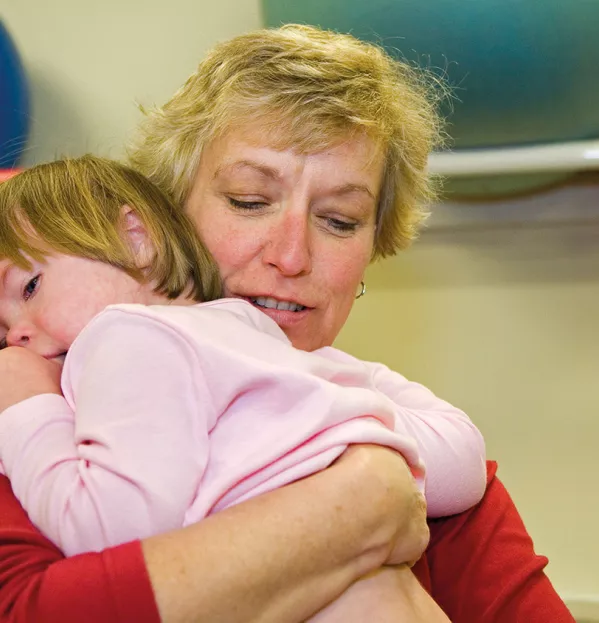“Mr Severs! You don’t remember me, do you?”
I looked at the woman speaking and quickly decided she was right: I had absolutely no idea who she was. I stuttered slightly, half smiled, tried to think of a polite way out. But she was already talking again before I could speak.
“You used to sit on my knee! And cry for hours,” she said.
People were staring now. She had given me a big clue: while I have been known to cry at films like Up and Turner and Hooch, I have tended not to leap into anyone’s lap while doing it. So, I decided, she must have known me while I was a child.
I remember very few things from before the age of 10. And unfortunately, this woman was not part of any of the scant memories I did have.
Then she shouted the answer at me.
“I am Mrs Kingdom!”
Of course she was. My first ever teacher. She had been heavily pregnant and she had gone on maternity leave at Christmas (though we had no idea what that meant at the time). I had cried in her arms every morning of her third trimester.
This reunion happened at my eldest son’s parents’ evening - she had been doing some music teaching at the school. As memories of her mopping up my tears from my cheeks rushed back, I looked around at my son’s school and thought of his teachers and the tears they have mopped up from his cheeks over the years.
It doesn’t get said enough that teachers have a spectacular gift for emotional intelligence. It’s humbling, as a parent, to see a teacher in action soothing, cajoling, nudging and motivating a young child. They know what to say, when to touch, when to be firm, when to cuddle. They understand how small moments spun together can create huge progress. They have a unique sense of the right moment to tell a parent to make a swift exit.
For all the academic gains my children may make, it’s these skills in making my children happy that matter most to me.
Before anyone writes an angry letter: yes, academic gains can make children happier. But we shouldn’t be afraid to make a separate argument for social and emotional wellbeing. Too often, we feel the need to equate interventions for the latter with tangible academic benefits, as if we can’t do anything in schools that does not lead to better outcomes on standardised tests.
And we should not look too hard to find a measure of emotional interventions, either. The likelihood is that you won’t find a compelling argument in statistics for a teacher holding a child’s hand to lead them into class, or a big hug after the holidays, or the gentle dabbing away of tears on their cheeks.
That’s not why teachers do it anyway. They do it because they care and have empathy. They do it because it is the human, decent thing to do. And they’re damn good at it. We need to value that more and praise it endlessly.
I tried to chat to Mrs Kingdom briefly, to reminisce. But she disappeared in a flurry of children trying to talk to her. I watched her walk down a corridor managing somehow to give each of four different children her undivided attention and I thought, not for the first time: a master teacher at work is a marvel of a thing to witness.
@jon_severs
This article originally appeared in the 4 June 2021 issue under the headline “We can’t measure happiness, but that doesn’t mean it’s worthless”





